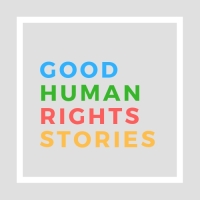Statement by the High Commissioner for Human Rights Michelle Bachelet
I am pleased to join you once again to share some good human rights stories. It is wonderful to see new members and I am encouraged by the political commitment of many leaders to adopt and implement human rights-based political, economic and social policies that bring us closer to the objective of not leaving anyone behind.
Let me begin by sharing with you a good – indeed a great – human rights story that I was privileged to be part of yesterday. With the new Minister of Foreign Affairs and in the presence of the new Prime Minister of Sudan, we signed an agreement that the UN Human Rights Office will set up presences in Khartoum, Darfur, Blue Nile, Southern Kordofan and East Sudan. The story of Sudan’s transition has been remarkable – starting with the courage of women and men taking to the streets in the face of violent repression in December last year. No one could have imagined that 10 months later, we would be working closely with a new Government, with a constitutional agreement in the country that is poised to make human rights a priority. Transitions are of course never easy, and are full of challenges. But we look forward to accompanying the Government and people of Sudan in making this transition a success for the human rights of all.
We are all aware that the 2030 Agenda is a vision for a more sustainable and equitable world, that leaves no one behind – and that it is closely aligned with human rights. And that the SDGs are a vehicle for the realization of all human rights. However, we also know all too well the challenges to the fulfillment of that vision: the lack of resources, rising inequalities, shrinking of civic space/fundamental freedoms and climate change.
To address these challenges, we need to foster meaningful partnerships with leaders from governments, business, civil society, grass-roots communities and other sectors to address financing gaps, identify innovative strategies, facilitate inclusive SDG implementation, and ensure safe participatory spaces that give the opportunity to all sectors of society to become development partners.
We must also look at what’s working, the good stories of States making policies that are grounded in human rights and the right to development and which move us closer to the achievement of Agenda 2030.
Earlier this year at an intersessional meeting of the Human Rights, a Government representative from Burkina Faso, highlighted how in his country, recommendations made by the human rights mechanisms were being used to help identify key issues and identify the groups who were most left behind. A representative of Paraguay also spoke to describe how they are integrating SDGs and human rights through a common monitoring system and database called ‘SIMORE’.
In Colombia, indigenous authorities and the Governor of Amazonas reached an agreement to advance the implementation of an Indigenous Intercultural Health System (SDG 4). In Cambodia, efforts are being made to improve housing for families and help resolve issues related to land tenure rights (SDG 11). In Uganda, public inquiries were held by the Equal Opportunities Commission to address discrimination complaints and provide redress and compensation to victims (SDG 10).
There have also been solid advances in a host of other human rights issues, such as the momentum towards abolition of the death penalty. Last December, a record 121 States voted in favor of General Assembly resolution 73/175 on a moratorium on the use of the death penalty.
The Gambia and the State of Palestine respectively ratified and acceded to the Second Optional Protocol to the International Covenant on Civil and Political Rights, aiming at the abolition of the death penalty.
Benin and Burkina Faso removed the death penalty from their Penal Codes, and the Central African Republic and Equatorial Guinea announced the drafting of legislation to take that step. Malaysia declared a moratorium on the use of the death penalty. In the United States of America, the State of California declared a moratorium on the use of the death penalty and in the State of Washington the death penalty statute was declared unconstitutional as a matter of state law. Iran removed the death penalty for a number of drug offences, which led to a significant decrease in executions.
Despite some moves towards the resumption of the use of the death penalty by some States and its continued use in others, there is a strong momentum towards eradicating capital punishment.
Another positive trend has been the decriminalization of same-sex consensual relationships in more than 50 countries since the early 90s. In the past year alone, Angola, Botswana, India, and Trinidad and Tobago have joined this list. Also this past year, Chile, Portugal, Luxembourg, Pakistan, Uruguay and others have made it easier for trans people to change their legal gender.
My Office has been privileged to support some of these efforts, and we look forward to continuing to work with States at the national level, with international support (including more dedicated resources) to yield more and more good human rights stories – stories that fulfill the SDG promise of realizing human rights and leaving no one behind.
